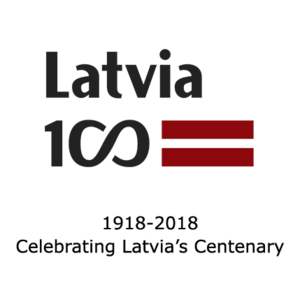21 August 1991 Adoption of the Constitutional Law on the Statehood of the Republic of Latvia
With 111 votes for and 13 votes against, the Supreme Council of the Republic of Latvia adopted the Constitutional Law on the Statehood of the Republic of Latvia on 21 August 1991. It was a significant political turning point in the history of our state because it repealed the transition period and restored the de facto independence of the Republic of Latvia.
21 August is the date which brought our state de facto independence, marked the beginning of the renewal of actual independence, restored our Constitution and separated Latvia from the legal domain of the USSR. This date also shows that 50 years of occupation could not prevent us from returning to the place where we have always belonged – the family of confident Western democratic countries.
Complete restoration of Latvia’s independence in a period of political turmoil
The Supreme Council adopted the Constitutional Law at a time when the Soviet Union was experiencing an attempted overthrow of the government. OMON troops had already captured the Latvian Television Centre, Latvian radio, the telephone exchange, telegraph office and the Ministry of the Interior; it had also demolished the headquarters of the Latvian National Front. A state of emergency was declared throughout the territory of the USSR.
In spite of such politically volatile and dangerous circumstances, the members of the Supreme Council of the Republic of Latvia managed to convene, to draft and to adopt the Constitutional Law. The meeting of 21 August 1991, during which the wording of the Constitutional Law was discussed, was disrupted by a report announcing that armoured personnel carriers of the OMON were approaching the Supreme Council building. Even under these circumstances, the members of the Supreme Council continued to discuss the wording of the Constitutional Law and voted for its adoption.
The Constitutional Law changed the process of de facto renewal of the independence of the Republic of Latvia by repealing the transition period set forth in the Declaration of 4 May 1990 on the Renewal of the Independence of the Republic of Latvia. De facto renewal of the independence of the Republic of Latvia was not possible on 4 May 1990 because all the financial, military and administrative resources were held by Moscow. Also, the legislative framework of an independent state was nonexistent at that time. A step-by-step approach was the only way to restore Latvia’s independence.
A clear decision in favour of independence and identification with the West
The Constitutional Law of 21 August 1991 marked a clear turning point in the history of our state – it was a clear decision in favour independence and a reaffirmation that we belong to the family of Western countries and share their values.
The Law clearly and precisely reflects the position of the Supreme Council that the independence of the Republic of Latvia was restored on the basis of the principle of continuity of statehood. Thus, after years of occupation, the independence and sovereignty of our state, as recognised unanimously without any reservations by the Supreme Council of the Entente on 26 January 1921, was restored.
The adoption of the Law excluded any alternative routes towards the statehood of the Republic of Latvia, such as creating a new state, negotiations with the USSR regarding cooperation opportunities, or signing a new union agreement.
In this context, the Constitutional Law also served as a vote of confidence in favour of the Constitution (Satversme) of 15 February 1922, with all the values of a Western democratic state based on the rule of law contained therein. According to the Declaration of 4 May 1990, it was expected that a new Constitution would be drafted to meet actual needs and probably to set forth constitutionally the ideology of democratised socialism. According to Article 1 of the Constitutional Law of 21 August, Latvia’s statehood is established by the 15 February 1922 Constitution of the Republic of Latvia. This decision accelerated the process of defining the values of Latvia’s legal system and reforming it.
The Constitutional Law clearly sets forth legal boundaries. The Supreme Council clearly stated that “Only the laws and the resolutions of the Supreme State power and State administrative institutions shall be in force in the territory of the Republic of Latvia” (Article 3 of the Constitutional Law). Thus the laws and regulations of the USSR were rendered null and void in the territory of the Republic of Latvia. The Republic of Latvia thereby declared that hereafter legally binding laws and regulations shall be passed only by the institutions of the Republic of Latvia.
Renewal of the Constitution and establishment of legal boundaries between the USSR and the Republic of Latvia also clearly defined the political orientation of the renewed statehood. The Constitutional Law is based on the postulate that the Republic of Latvia is a state which belongs to the Western legal domain and which recognises and implements standards of a democratic and law-governed state, such as human rights, separation of powers, protection of private property, and a market economy. According to the intentions of the Supreme Council, the Republic of Latvia should be shaped as a developed and modern law- governed democracy that strives to establish closer cooperation and deeper integration with other Western democracies.
The basis for restoration of independence
The Constitutional Law is the very foundations of de facto restoration of the independence of the Republic of Latvia. The Law enabled the international community to recognise Latvia’s independence, and, in turn, it gave Latvia a chance to become a member of the family of Western countries by joining UN and OSCE (then the Conference on Security and Cooperation in Europe [CSCE]). Reference to the adoption of this Law enabled other countries to recognise the restoration of our independence and to acknowledge its de facto return to the international community.
21 August 1991 is a date of great political significance in our history. However, we should also bear in mind that paradoxically, on one hand, this date marks a turning point but, on the other hand, it does not signify the beginning of something new. It was the turning point in our 50-year-long struggle against the occupation and a breakpoint for the renewal of our independence. Yet the date we celebrate for the 20th time did not bring anything new in terms of our understanding of our position in the world, our values and culture. 21 August represents a permanent return to the Western community from which we had been forcibly separated.
 Facebook
Facebook






